Break free from your ISP with Surfshark's public DNS – what you need to know
The service was created for privacy-conscious individuals and organizations
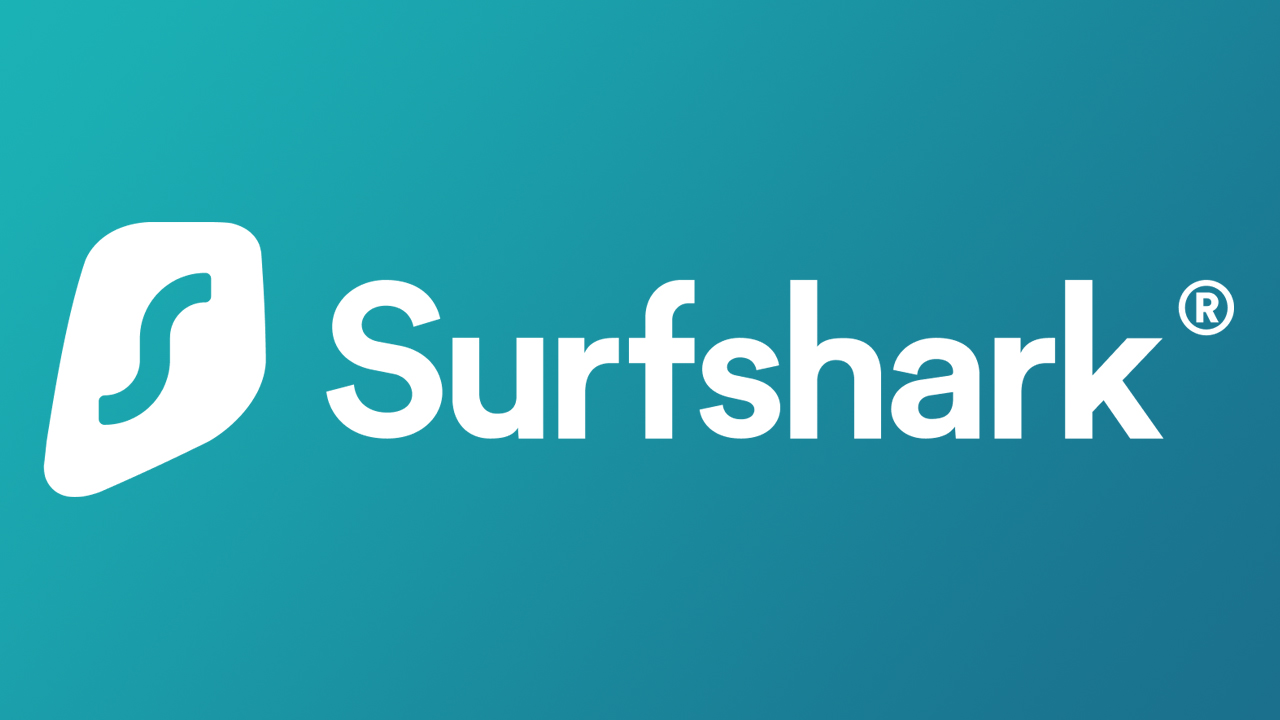
Surfshark has become the first company to launch a privacy-focused public DNS (Domain Name System) service.
Default DNS servers provided by ISPs (Internet Service Providers) often track and log your activity, but Surfshark's will not log your browsing history, data, or any internet activity.
Known for providing one of the best VPNs, Surfshark's DNS was created for the privacy-conscious and helps people secure their privacy and security.
Private DNS queries
Privacy, trust, and security are the main reasons for using an alternative DNS server. Many people rely on the default DNS provided by their ISP – Cloudflare is one of the most commonly seen – but they come with privacy concerns.
ISPs may collect and log users' DNS queries. They can also monitor DNS traffic and are capable of blocking specific hostnames when necessary – VPN traffic and IP addresses can also be blocked at a DNS level.
As well as this, data could be used to target ads or sold to third-parties.
Dubbed the "phonebook of the internet," DNS servers find the correct IP addresses for the sites you search.
"This initiative reflects our dedication to the privacy community and addresses the increasing demand for trustworthy, privacy-first DNS solutions," said Karolis Kaciulis, Leading System Engineer at Surfshark.
"By offering a free, privacy-oriented DNS service, we are not only seeking Surfshark’s commitment to make the internet a safer place for everyone but also encouraging individuals, organisations, as well as NGOs to take their first steps towards enhancing online privacy."
"Our DNS service is designed with both stable connectivity and privacy in mind, offering a robust network that doesn’t store or track personal data, giving users a private, seamless browsing experience."
Surfshark DNS also supports secure DNS protocols such as DoT, DoH, and DoQ to keep browsing activity private.
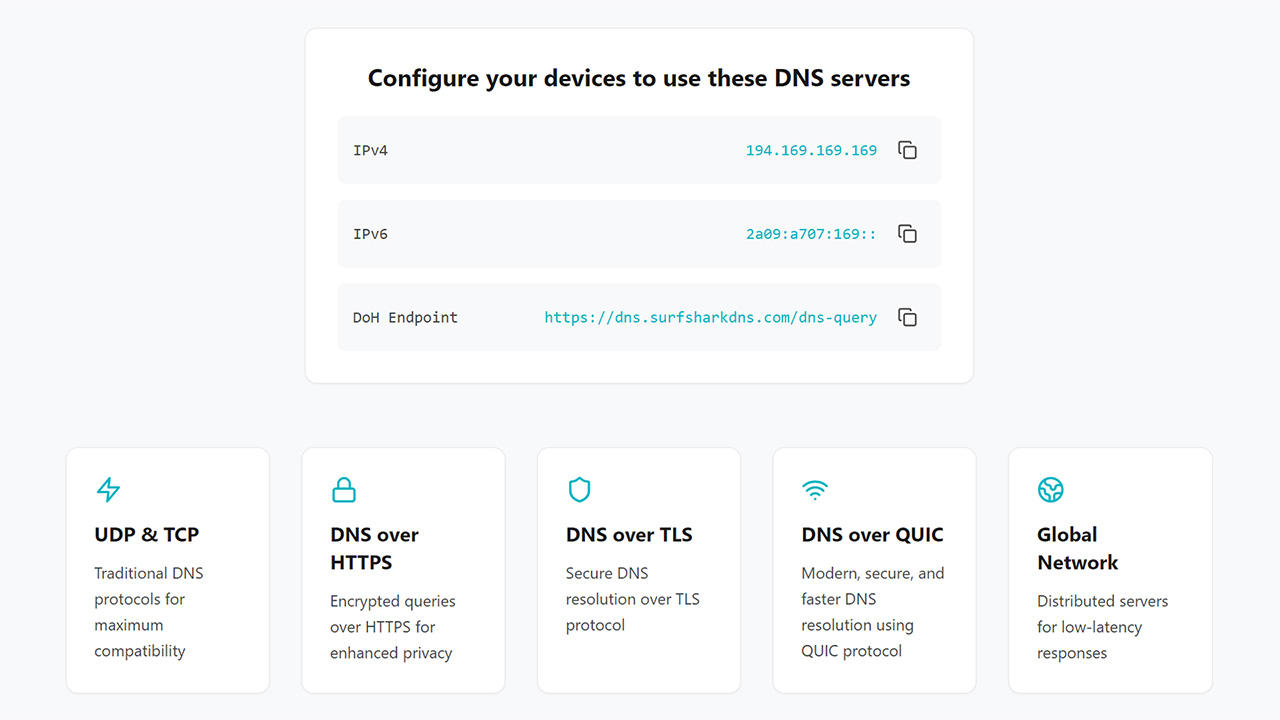
Speed and security
Surfshark DNS server operates a strict no-logs policy, as does Surfshark VPN. This means no collection, storage, or sharing of browsing activity.
The VPN passed an independent no-logs audit in 2023 and Kaciulis confirmed plans to also audit its public DNS server.
You may see a positive improvement in network performance as Surfshark DNS is unlikely to become overloaded like default DNS servers are in danger of.
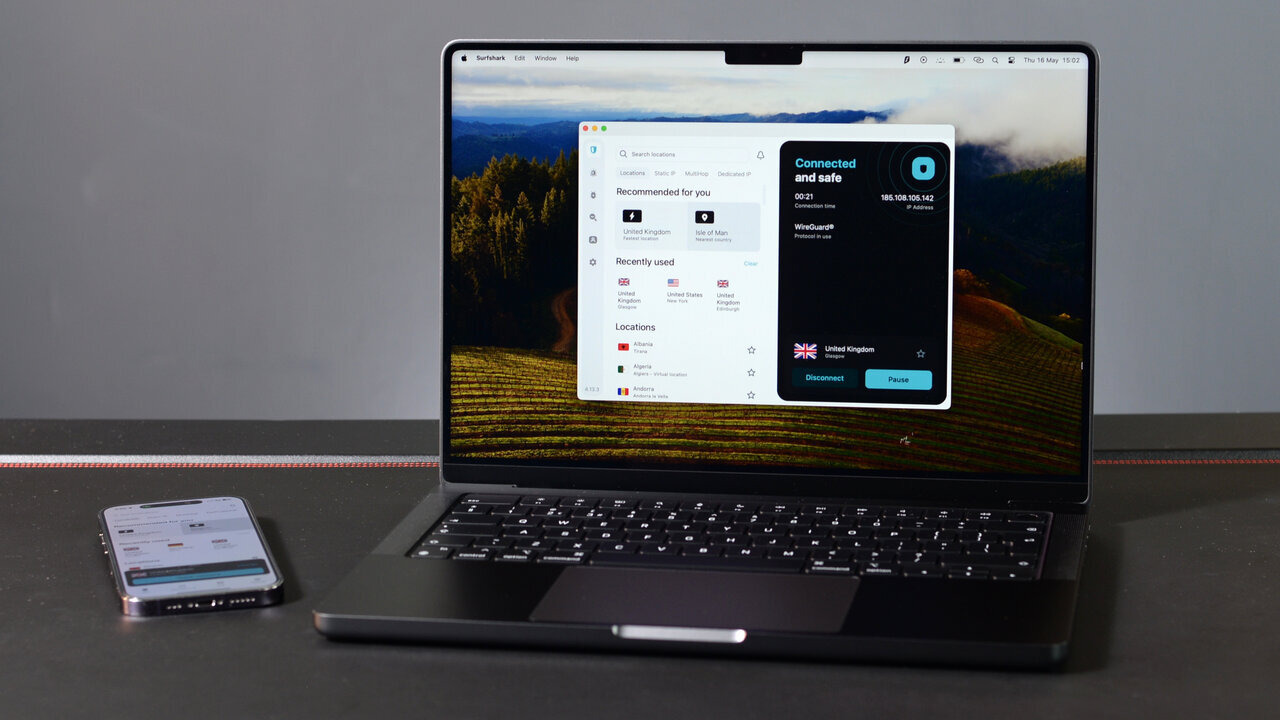
Its infrastructure is spread out, resulting in a better understanding of geolocation. This can provide you with closer servers which can help reduce delays, connection drops, and improve overall browsing reliability.
Surfshark knows a thing or two about speed, with Surfshark VPN being one of the fastest VPNs we've tested.
Using a VPN-operated DNS server alongside a VPN is a great way of protecting your online privacy . However, you can also use your own DNS with a VPN – although there are pros and cons to this.
How to access Surfshark DNS
You can head to dns.surfsharkdns.com to configure you devices to use IPv4, IPv6, and DoH Endpoint DNS servers.
Default DNS servers can be replaced with Surfshark DNS servers on Windows, Android, macOS, iOS, and routers.
Click through the gallery below to find specific instructions on how to access Surfshark DNS on these devices.
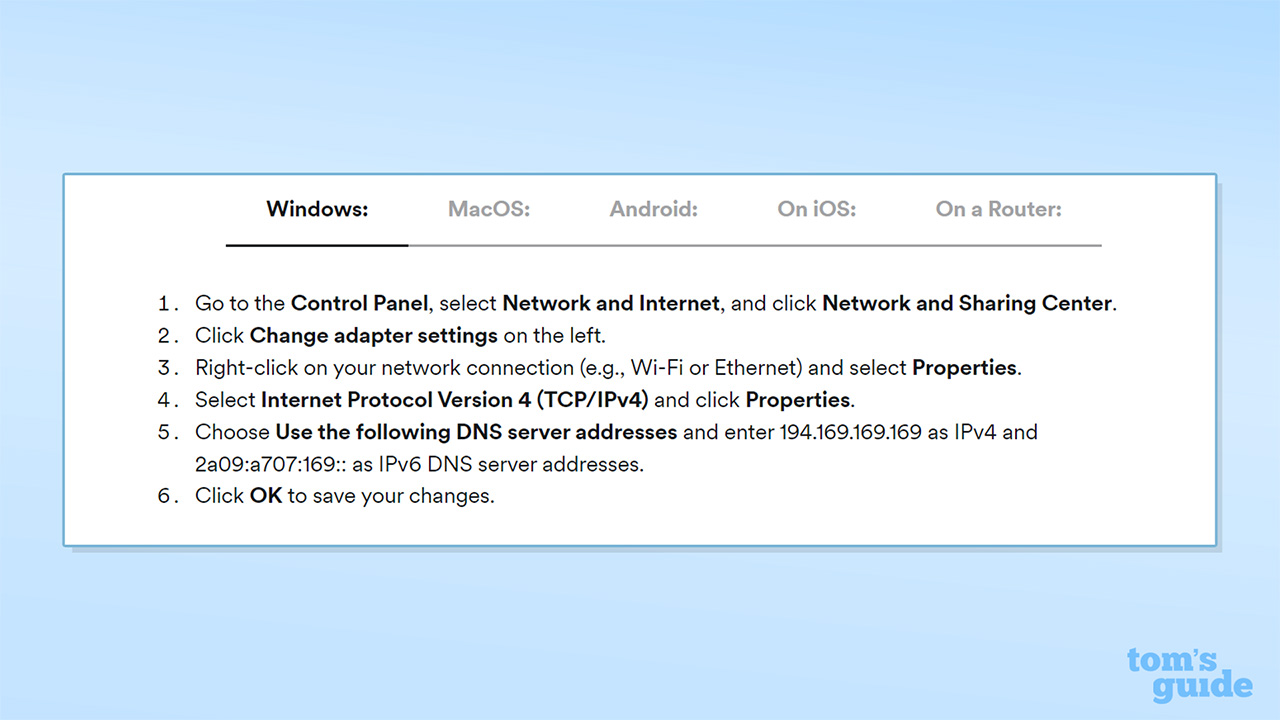
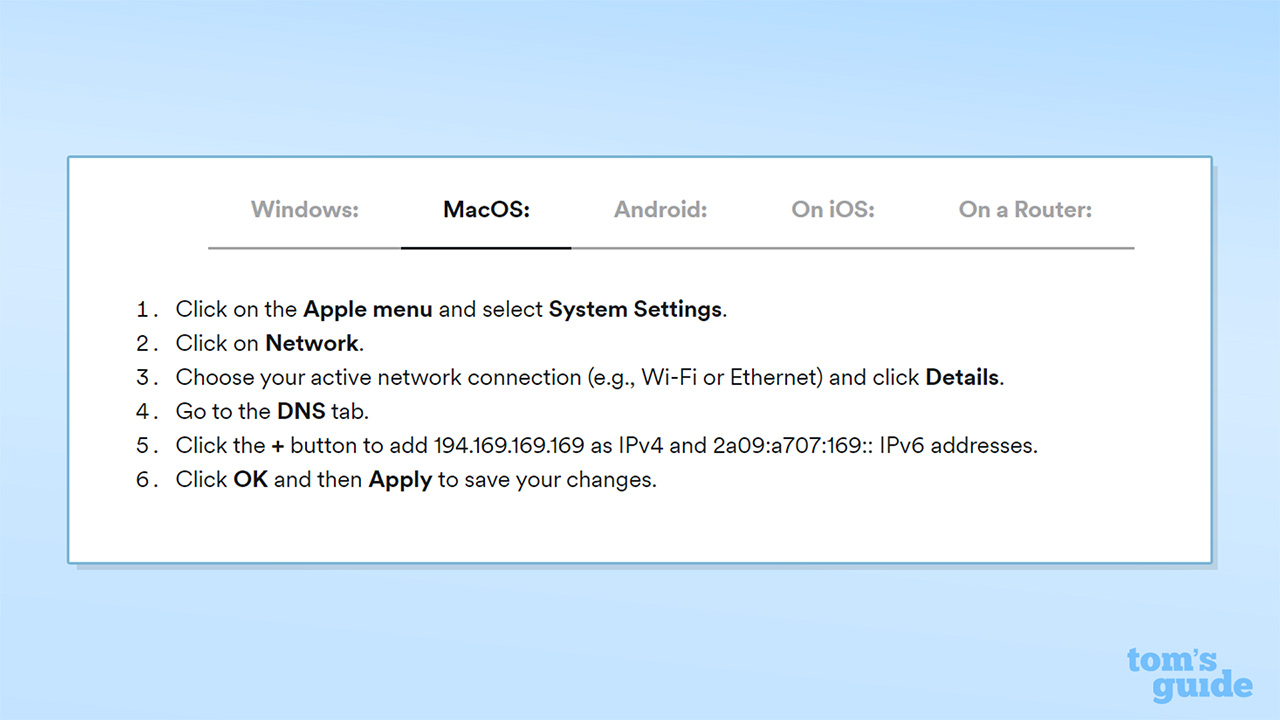
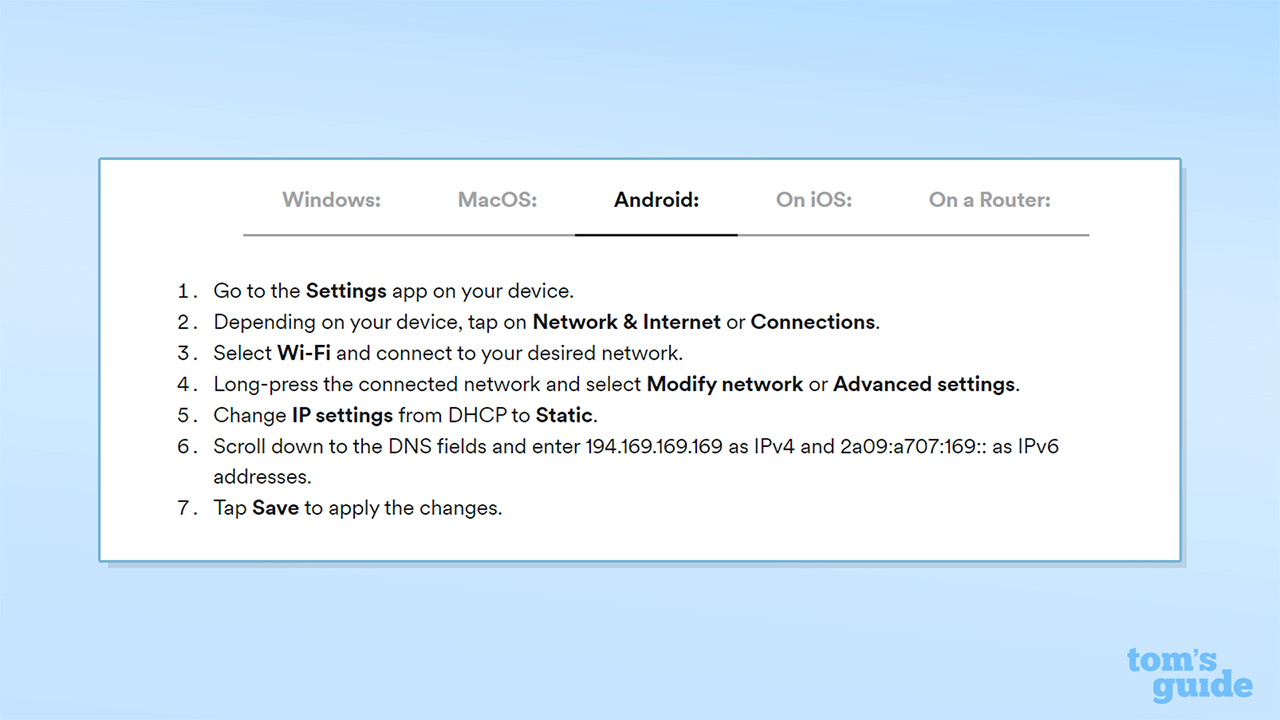
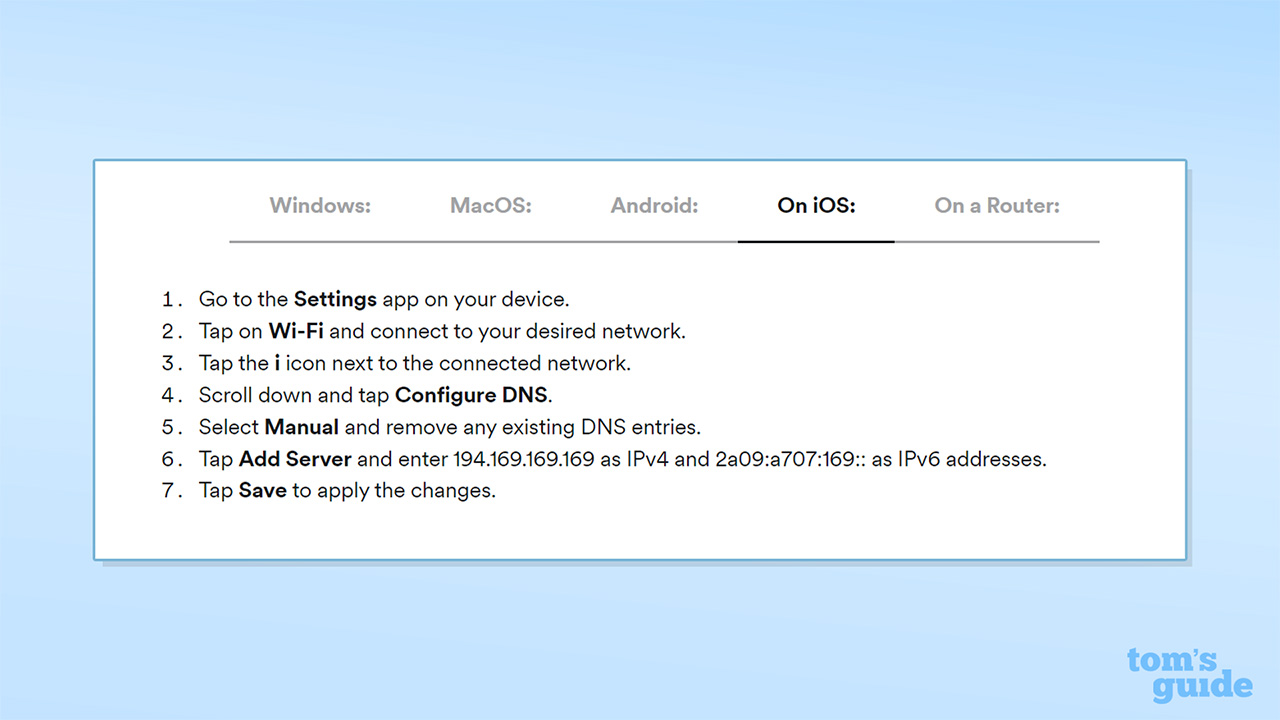
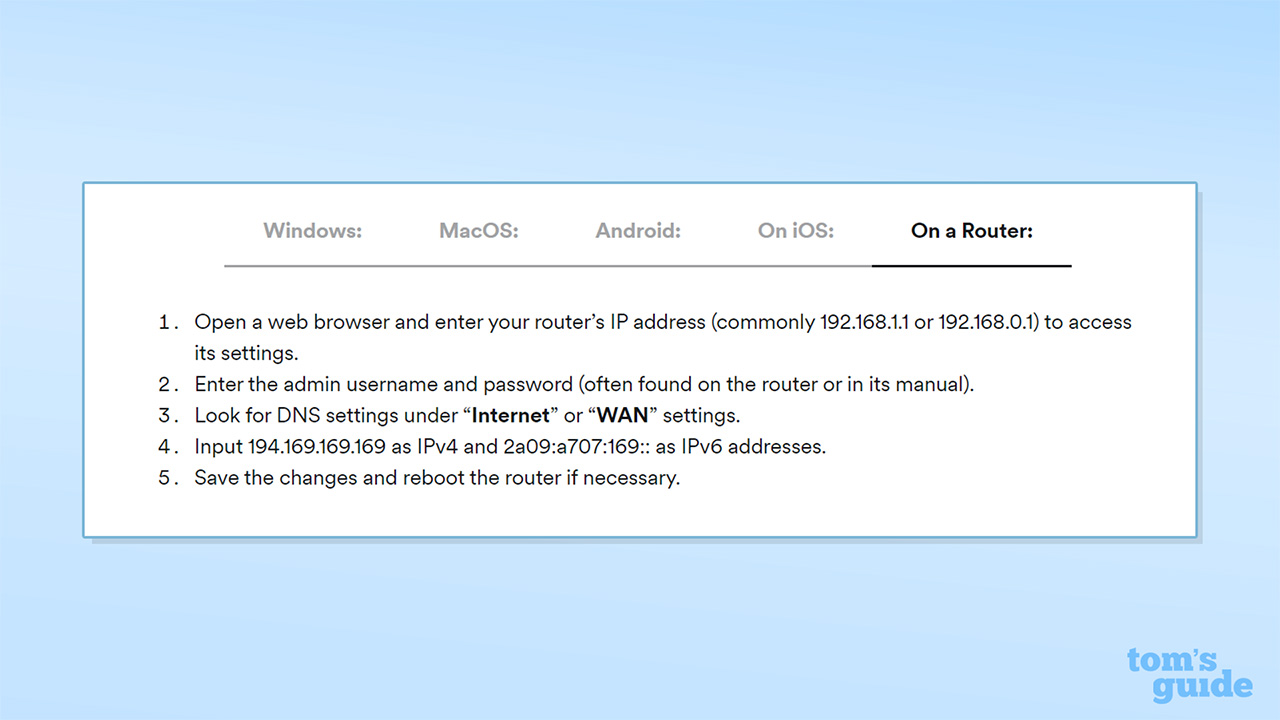
Disclaimer
We test and review VPN services in the context of legal recreational uses. For example: 1. Accessing a service from another country (subject to the terms and conditions of that service). 2. Protecting your online security and strengthening your online privacy when abroad. We do not support or condone the illegal or malicious use of VPN services. Consuming pirated content that is paid-for is neither endorsed nor approved by Future Publishing.

George is a Staff Writer at Tom's Guide, covering VPN, privacy, and cybersecurity news. He is especially interested in digital rights and censorship, and its interplay with politics. Outside of work, George is passionate about music, Star Wars, and Karate.
You must confirm your public display name before commenting
Please logout and then login again, you will then be prompted to enter your display name.
